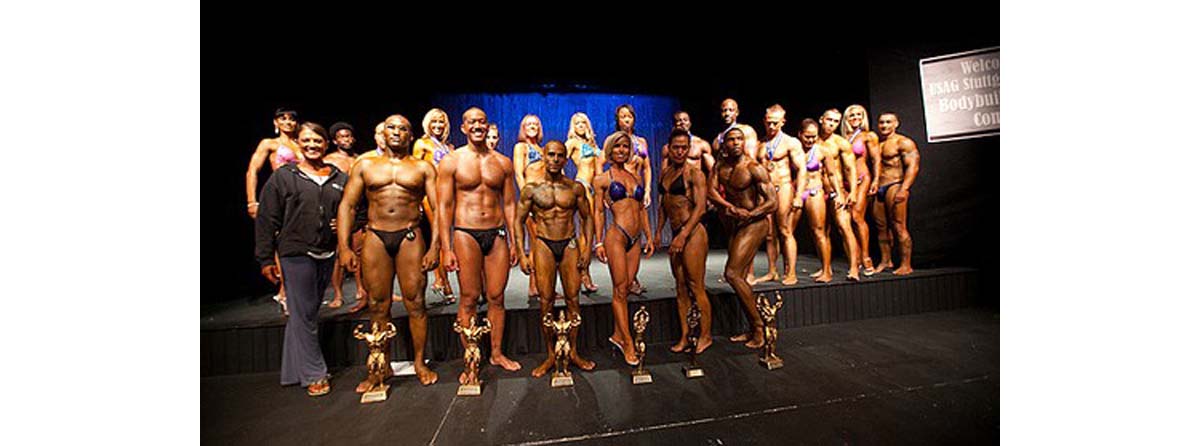Growing popularity of protein supplements for bodybuilding reflects the success of sport supplement business. In every gym around the world you will see big (and not so big) guys constantly sipping from the bottles of protein shakes.

Many self-respecting gyms sell the protein-rich stuff in the form of bars and drinks right on the spot, charging premium for already overpriced products. And overpriced they are: reputable sport supplement or healthy food shops would charge around $30 per kilogram of whey protein claiming it to be a huge saving and remarkable value for money.
Any product that is claimed to deliver improvements in comparison with standard whey protein can cost significantly more (by this I mean several times more). Lots of effort is put into the marketing campaign: the packages of protein supplements have appealing sexy design, and the names like Maximuscle, Muscle Fortress and MuscleTech do sound attractive and promising, particularly for a younger and less experienced crowd.
How real are the benefits of proteins?
This question is not so easy to answer.
They vary from well-known things such as creatine to testosterone boosters to things more exotic such as ecdysterone (hormone derived from insects). Which of them contributes the most to the athletes muscle growth remains just a guess.
Another phenomenon, particularly common among the beginners, is that they tend to exercise much more in those periods when they are taking supplements. Again, in these circumstances, it is difficult to establish which part of success in the muscle growing was attributed to the supplements, and which to the simple hard work.
Sceptical point of view
Being a regular gym visitor, I have tried plenty of protein supplements myself. The result was confusing – I didn’t see much in terms of accelerated muscle growth. At least I couldn’t say that any improvement that I achieved were clearly attributed to the protein supplementation.
After trying many branded types of proteins I have eventually decided to adhere to the natural protein-rich diet. Paying extra bucks for nice packages of whey simply didn’t work for me. This was also the experience of many other fellow gym goers. Eating sufficient amount of high quality low fat meat every day seems to provide pretty much the same final results to me (in addition to saving money and avoiding digestive discomfort).
Protein supplementation confers minimal but important advantage
Don’t take me wrong – protein is definitely needed to achieve the muscle gain. Muscles are made of proteins, and without the adequate protein supply they will not grow.

The question is whether the excessive protein supplementation helps to achieve bigger and stronger muscles? And do the commercial protein supplements help in this matter comparing to simple protein-rich foods?
Many shakes contain additional carbohydrates added to provide energy for improving your gym performance. Other supplements have higher content of specific amino acids such as branched amino acids that are required to build muscle. A number of protein supplements are designed to be more easily digestible and avoid the common digestive problems I have mentioned above.
All this improvements come with higher price tag. The question if they represent a value for money is unlikely to be answered by anyone. There are simply not enough scientific evidences at present time to support the manufacturer’s claims of their products’ unparalleled benefits.
There is no doubt that increased level of protein consumption does contribute to the muscle gain. The question about what this level should be is not so easy to answer. The muscle gain caused by excessive supplementary proteins consumption is often accompanied by less desirable gain in fat as well. This is something to keep in mind if you want to get ripped toned ads, not just bulk weight. Besides, our body tends to metabolize the excess of proteins and excrete it through kidney rather than use it for building more muscles.
What are the hard scientific evidences?
I certainly don’t want to say that buying and consuming commercial protein supplements is a bad idea. They do help in achieving your goals. They are mostly safe and provide your body with what it needs for growth. In addition, the feel-good factor should not be discarded – it works remarkable well for many people. They are not necessarily suitable to the broad population and average gym goer. And they should be taken with consideration of potential side effects.
But I have to reiterate though: if you are extremely serious about growing big, and probably even competing, then protein is what you need. For instance, having small additional protein supplementation between the meals has been proven to work. Proteins rich on certain types of amino acids tend to boost muscle gain too.
Review published in the Journal of Sports Sciences (one of the references to this article) describes all these advantages in details. The authors, however, don’t see any evidences in support of recommendations for particular protein intake per day. Most recommended daily intake numbers are not supported by solid evidences. There should be, without doubt, an optimal amount of protein that has to be taken to achieve the maximal muscle hypertrophy. But we still don’t know what this amount is.
It seems that the success of protein supplementation depends on many factors such as individual parameters of metabolism, type of exercise, timing of ingestion and relation to other nutrients. Finding the best balance remains the matter of trials and errors.
- Alert: Protein drinks. You don't need the extra protein or the heavy metals our tests found. Consumer reports 75 (7): 24–7. 2010
- Tipton, K.D. and Wolfe, R.R. Protein and amino acids for athletes. Journal of Sports Sciences, 2004, 22, 65–79
- Photo courtesy of Herald Post by Flickr : www.flickr.com/photos/heraldpost/4973009353/
- Photo courtesy of Eric Mesa by Flickr : www.flickr.com/photos/ericsbinaryworld/3451208882/

